International
What does it mean to recognize a new state?
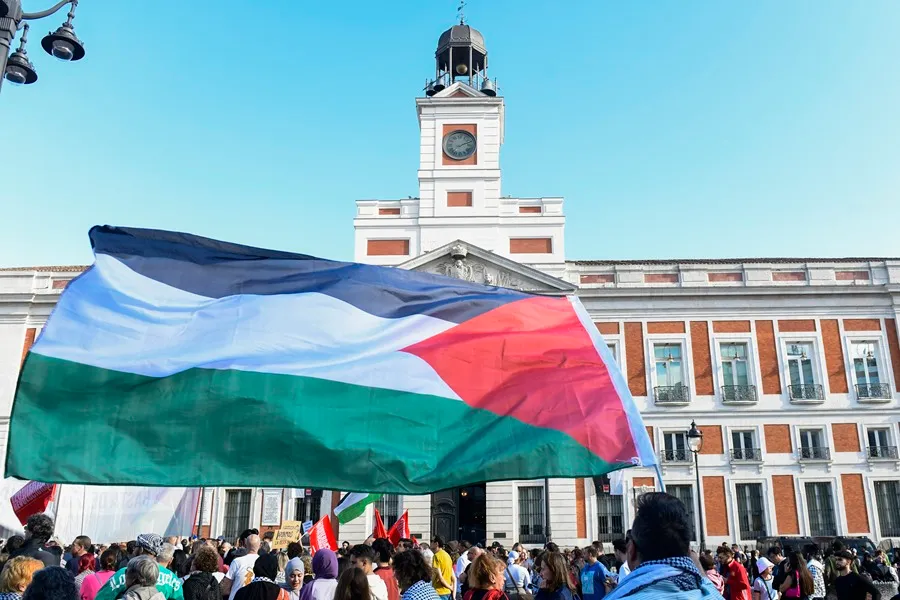
The announcement of the President of the Government, Pedro Sánchez, that Spain will recognize Palestine as a State on the 28th fulfills a political promise, although it does not clear up some questions about the practical consequences that the mandate will have.
The coalition government of PSOE and Sumar pledged to approve it, in line with the non-legislative proposal agreed in Congress in 2014 by most political groups, including the PP.
The situation in Palestine after the October 7 attacks by Hamas on Israel and the response of this country’s army in the Gaza Strip, which has caused more than 35,000 deaths, pushed the Sánchez Government to take the definitive step in order to press for a solution to the Middle East conflict.
The step of recognizing a State is a legal act regulated by International Law. It depends exclusively on the Government’s agreement, without the need to have the support of Parliament, although it may ask for it.
It is a unilateral decision and does not depend, in the case of Spain, whether or not it has the approval of the EU, which does not have competence in the area of recognition of States.
Of the 193 members of the United Nations, just over 140 recognize it as a State, which will be joined by Spain, Norway and Ireland on the 28th.
There are eight other EU members who have already taken the step, such as Sweden, Romania or Poland, but they have not made important partners such as Germany, France or Italy.
On April 10, 143 countries asked the UN General Assembly to endorse Palestine as a full-fledged state, but this decision must have the approval of the Security Council and the United States opposes it.
Recognizing a new State requires that there be a defined population, a delimited territory and a government that exercises authority over it. “In the case of Palestine, no assumption is now fulfilled because there are no internationally established borders,” the professor of Public International Law at the UNED, Eduardo Trillo, points out to EFE.
Similarly, Trillo points out, there is no government that has control over the entire Palestinian territory – the West Bank and the Gaza Strip -, since the first is exercised by the Palestinian National Authority (ANP) and in the second, Hamas had it until the war with Israel and is a faction that Spain does not consider an interlocutor.
According to Trillo, it is not something that Spain has to specify, because Palestine lacks defined limits according to international law. Therefore, the UNED professor adds, more than at the legal level, recognition should be interpreted as “a political push to the peace process and a support for the right of self-determination of the Palestinian people.”
Spain can from now on formalize political relations with Palestine and sign international treaties, among other initiatives. So far, Spain has signed a memorandum of understanding of cooperation since 1994 channeling humanitarian aid to the Palestinian people and another for the establishment of political consultations since 2012.
It is a discretionary measure of the Government, according to the professor of International Relations at the European University, Beatriz Gutiérrez. Today, it is the Consulate General of Spain, located in Jerusalem, that acts as an “embassy” and channels the relationship with the ANP.
Among the questions, Gutiérrez adds, is whether Spain would take the step of recognizing Jerusalem as the Palestinian capital, something it has not done so far.
The ANP has an office in Madrid, which since 2010 has had the rank of diplomatic mission – previously it was a “delegation” – and its premises have inviolability.
The head of the office acts as ambassador in practice and participates in the king’s receptions to the diplomatic corps. On its website, there is talk of “The Embassy of Palestine in Spain.”
The war conflict between Israel and Hamas makes it difficult to give content to the state recognition of Palestine. “Until the war is over, it is difficult to make a perspective of the practical effects. It is too early to see how it will be managed,” says the professor of the European University, who agrees that the measure adopted by Spain should be seen, above all, from “a symbolic rather than a legal point of view.”
South Sudan was the last country that Spain gave its endorsement in 2011, after almost all the citizens of this territory supported the separation of the north from the country in a referendum.
In the 21st century, Spain has recognized two other countries: Montenegro, in 2006, and East Timor, in 2002.
International
Deportation flight lands in Venezuela; government denies criminal gang links

A flight carrying 175 Venezuelan migrants deported from the United States arrived in Caracas on Sunday. This marks the third group to return since repatriation flights resumed a week ago, and among them is an alleged member of a criminal organization, according to Venezuelan authorities.
Unlike previous flights operated by the Venezuelan state airline Conviasa, this time, an aircraft from the U.S. airline Eastern landed at Maiquetía Airport, on the outskirts of Caracas, shortly after 2:00 p.m. with the deportees.
Interior Minister Diosdado Cabello, who welcomed the returnees at the airport, stated that the 175 repatriated individuals were coming back “after being subjected, like all Venezuelans, to persecution” and dismissed claims that they belonged to the criminal organization El Tren de Aragua.
However, Cabello confirmed that “for the first time in these flights we have been carrying out, someone of significance wanted by Venezuelan justice has arrived, and he is not from El Tren de Aragua.” Instead, he belongs to a gang operating in the state of Trujillo. The minister did not disclose the individual’s identity or provide details on where he would be taken.
International
Son of journalist José Rubén Zamora condemns father’s return to prison as “illegal”
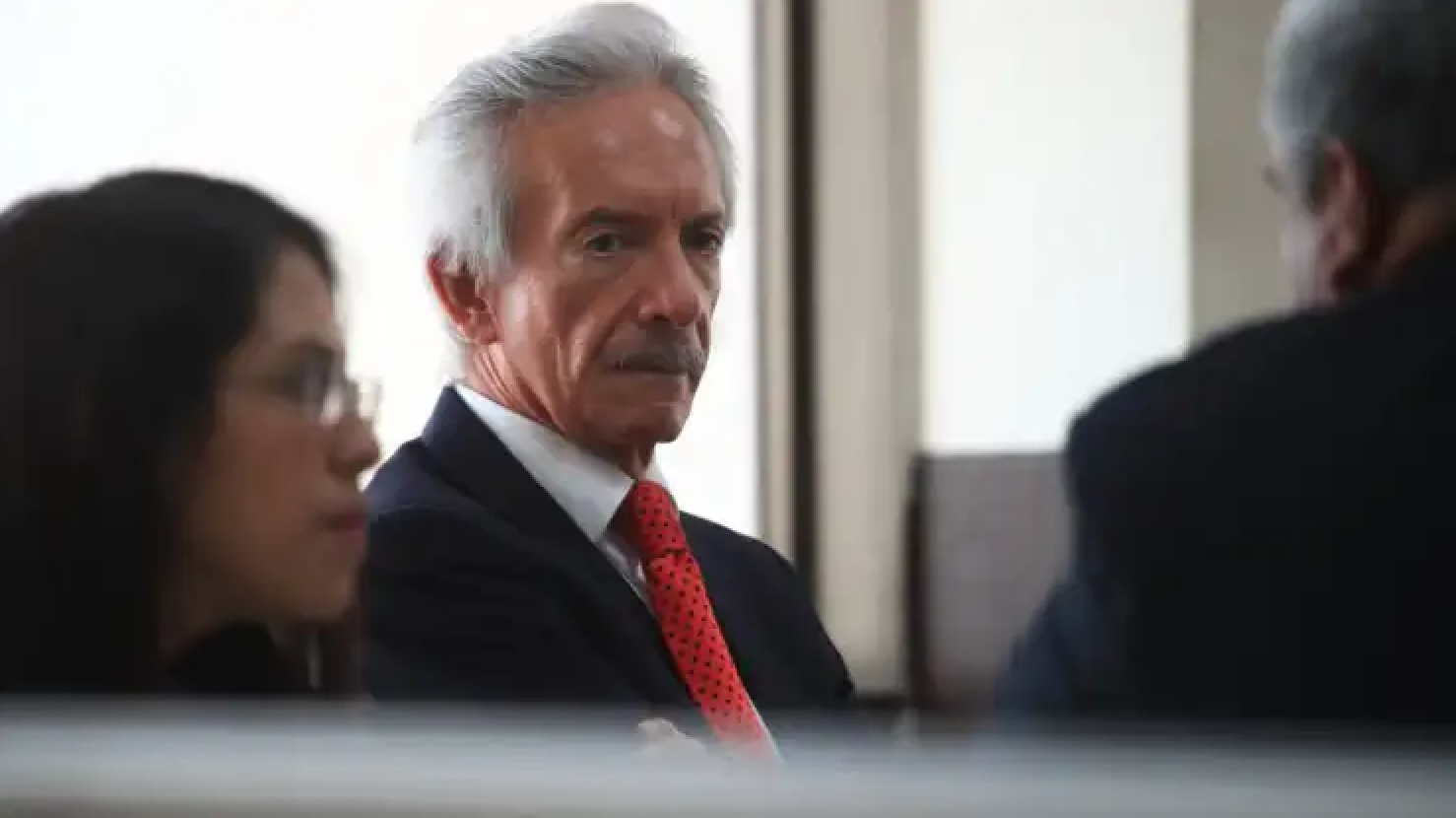
The son of renowned journalist José Rubén Zamora Marroquín, José Carlos Zamora, has denounced as “illegal” the court order that sent his father back to a Guatemalan prison on March 3, after already spending 819 days behind barsover a highly irregular money laundering case.
“My father’s return to prison was based on an arbitrary and illegal ruling. It is also alarming that the judge who had granted him house arrest received threats,” José Carlos Zamora told EFE in an interview on Saturday.
The 67-year-old journalist was sent back to prison inside the Mariscal Zavala military barracks on March 3, when Judge Erick García upheld a Court of Appeals ruling that overturned the house arrest granted to him in October. Zamora had already spent 819 days in prison over an alleged money laundering case.
His son condemned the situation as “unacceptable”, stating that the judge handling the case “cannot do his job in accordance with the law due to threats against his life.”
International
Miyazaki’s style goes viral with AI but at what cost?
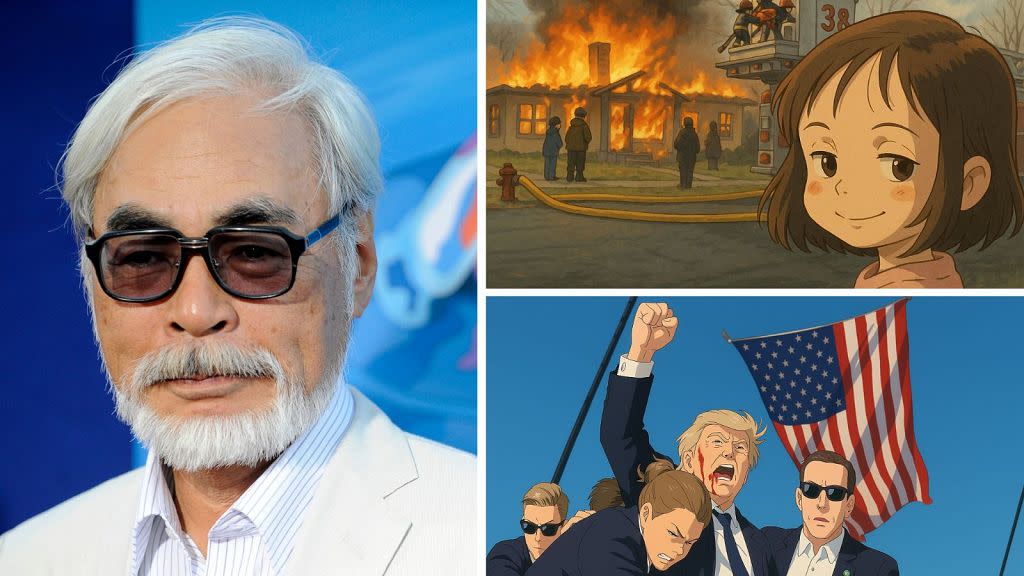
This week, you may have noticed that everything—from historical photos and classic movie scenes to internet memes and recent political moments—has been reimagined on social media as Studio Ghibli-style portraits. The trend quickly went viral thanks to ChatGPT and the latest update of OpenAI’s chatbot, released on Tuesday, March 25.
The newest addition to GPT-4o has allowed users to replicate the distinctive artistic style of the legendary Japanese filmmaker and Studio Ghibli co-founder Hayao Miyazaki (My Neighbor Totoro, Spirited Away). “Today is a great day on the internet,” one user declared while sharing popular memes in Ghibli format.
While the trend has captivated users worldwide, it has also highlighted ethical concerns about AI tools trained on copyrighted creative works—and what this means for the livelihoods of human artists.
Not that this concerns OpenAI, the company behind ChatGPT, which has actively encouraged the “Ghiblification”experiments. Its CEO, Sam Altman, even changed his profile picture on the social media platform X to a Ghibli-style portrait.
Miyazaki, now 84 years old, is known for his hand-drawn animation approach and whimsical storytelling. He has long expressed skepticism about AI’s role in animation. His past remarks on AI-generated animation have resurfaced and gone viral again, particularly when he once said he was “utterly disgusted” by an AI demonstration.
-

 International4 days ago
International4 days agoFederal court blocks Trump’s use of Enemy Alien Act for deportations
-
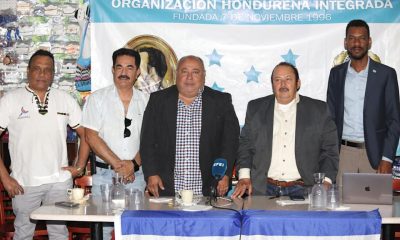
 Central America4 days ago
Central America4 days agoHonduran group in U.S. pushes for voter registration to prevent election fraud
-

 Central America4 days ago
Central America4 days agoKristi Noem in Latin America: Talks with Bukele on expulsions and security policies
-
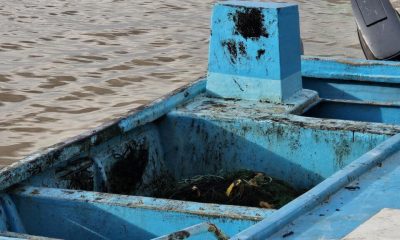
 International4 days ago
International4 days agoEcuador oil spill worsens as containment dam collapses
-

 Central America3 days ago
Central America3 days agoNicaragua denounces Costa Rica’s position in SICA as aligned with foreign interests
-

 Central America3 days ago
Central America3 days agoNicaragua’s new judicial law consolidates power in Ortega and Murillo’s hands
-
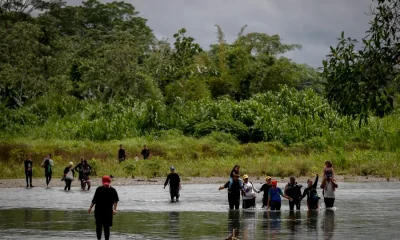
 Central America3 days ago
Central America3 days agoPanama’s president declares Darién gap ‘closed’ amid sharp drop in migrant flow
-

 International3 days ago
International3 days agoMarco Rubio warns Venezuela against military action against Guyana
-

 International1 day ago
International1 day agoSon of journalist José Rubén Zamora condemns father’s return to prison as “illegal”
-

 International1 day ago
International1 day agoMiyazaki’s style goes viral with AI but at what cost?
-

 Central America54 mins ago
Central America54 mins agoPanama police clarifies that Interpol alert for Martinelli is still pending
-

 International56 mins ago
International56 mins agoDeportation flight lands in Venezuela; government denies criminal gang links
-
Central America2 days ago
Nicaragua revokes legal status of 10 more NGOs, bringing total to over 5,600















